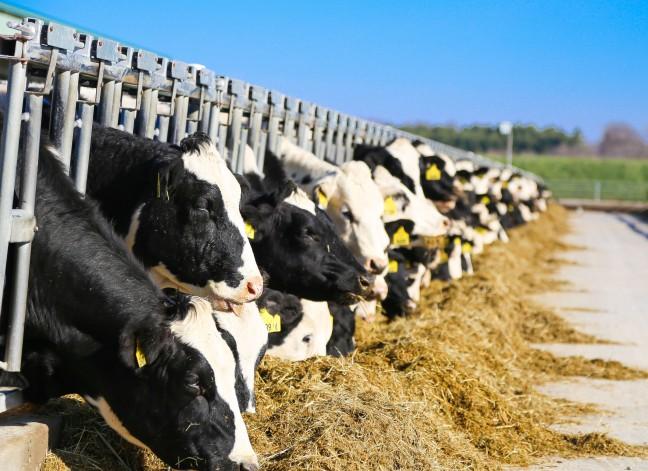Gov. Tony Evers unveiled a new plan aimed at alleviating Wisconsin’s ongoing dairy farm foreclosure crisis during his State of the State Address Jan. 22.
Evers’ address comes on the heels of a year marked by record-breaking dairy farm closures. A report from the Wisconsin Department of Agriculture, Trade and Consumer Protection found the state lost almost 800 dairy farms in 2019.
The rapid decline in dairy farms throughout Wisconsin can be traced back to a variety of factors, including low milk prices, farm consolidation and low export numbers due in part to the ongoing trade wars, according to University of Wisconsin Dairy Policy expert Mark Stephenson. Stephenson said in order to address the dairy farm crisis, it is imperative to tackle multiple pressure points on farmers.
Evers’ proposed initiative takes a multifaceted approach to help the state’s ailing namesake industry. According to a transcript of Evers’ address, the plan includes legislative action to increase state dairy exports as well as measures Evers’ claimed would help farmers deliver more of their products to the state’s schools and businesses, including an expansion to the Farm Center.
Additionally, Evers’ plan includes the creation of a program designed to help farmers access mental healthcare, including peer support networks and professional consultation. The measure comes amid a period of rising suicide rates among Wisconsinites, including the record 915 suicides in 2017, many of whom were dairy farmers, according to the Wisconsin State Journal.
Stephenson says mental health outreach is a significant element in Evers’ approach.
“It’s definitely a step in the right direction,” Stephenson said. “This [mental health access] is a serious issue for these communities right now and I think it’s important that it is finally being addressed as part of a larger problem.”
Equally central to Evers’ address was a call for bipartisanship in tackling Wisconsin’s socioeconomic struggles. He cited unity as central to his vision for the state. It’s a notion that Family Farm Defenders Executive Director John Peck claims is refreshing to see in government.
Peck said both political parties want sustainable rural economies but have different approaches.
“I think most Republicans would argue 50 little farms are better than one giant farm, and Evers is from a farm community,” Peck said.
In order to bolster the state’s economy, Evers also proposed establishing the Wisconsin Initiative for Dairy Exports to increase Wisconsin’s dairy exports to account for 20% of the U.S. milk supply by 2024.
It’s a mission which, if accomplished, would provide a significant boost to the state economy. Perhaps more importantly, however, it may represent a commitment by Wisconsin’s state government to combat the issue. Stephenson is encouraged by Evers’ address and sees the governor’s actions as a catalyst for change.
“We’ve still got a very long way to go in order to fix this issue, but we’ve definitely turned a corner,” Stephenson said. “The fact that Gov. Evers went into such depth on the issue [of farm closures] shows it is moving toward the center of people’s attention and that’s important.”
Evers’ speech drew criticism for measures Peck argued would only serve the interest of larger farms and corporations while passing over small farmers. According to Peck, increasing dairy exports to such a degree would only benefit larger corporate agribusiness because small farmers are not currently exporting. Peck also said while mental health services are vital to alleviating the crisis, improving access to mental healthcare will not solve the economic crisis which drives farmers to take their own lives.
Peck said in order to end the dairy crisis, the state government should regulate the number of large farms in Wisconsin, shifting instead to promote small agribusiness. Peck supports federal government regulation of milk prices, suggesting farmers will not be able to obtain a livable price for their milk.
“DATCP and the DNR can stop issuing permits to large scale farms and stop providing them subsidies,” Peck said. “No more taxpayer subsidies for factory farms in Wisconsin. Farmers deserve a fair price for their milk, and that’s going to require a national supply management program like they have in Canada.”
In the days after the State of the State Address, Evers called state legislature into a special session to discuss his proposals the following week. Two weeks later, Speaker Robin Vos, R-Rochester, announced the Assembly Republicans will introduce their own package of bills, including new agriculture tax credits and export incentives, according to Wisconsin Public Radio.


